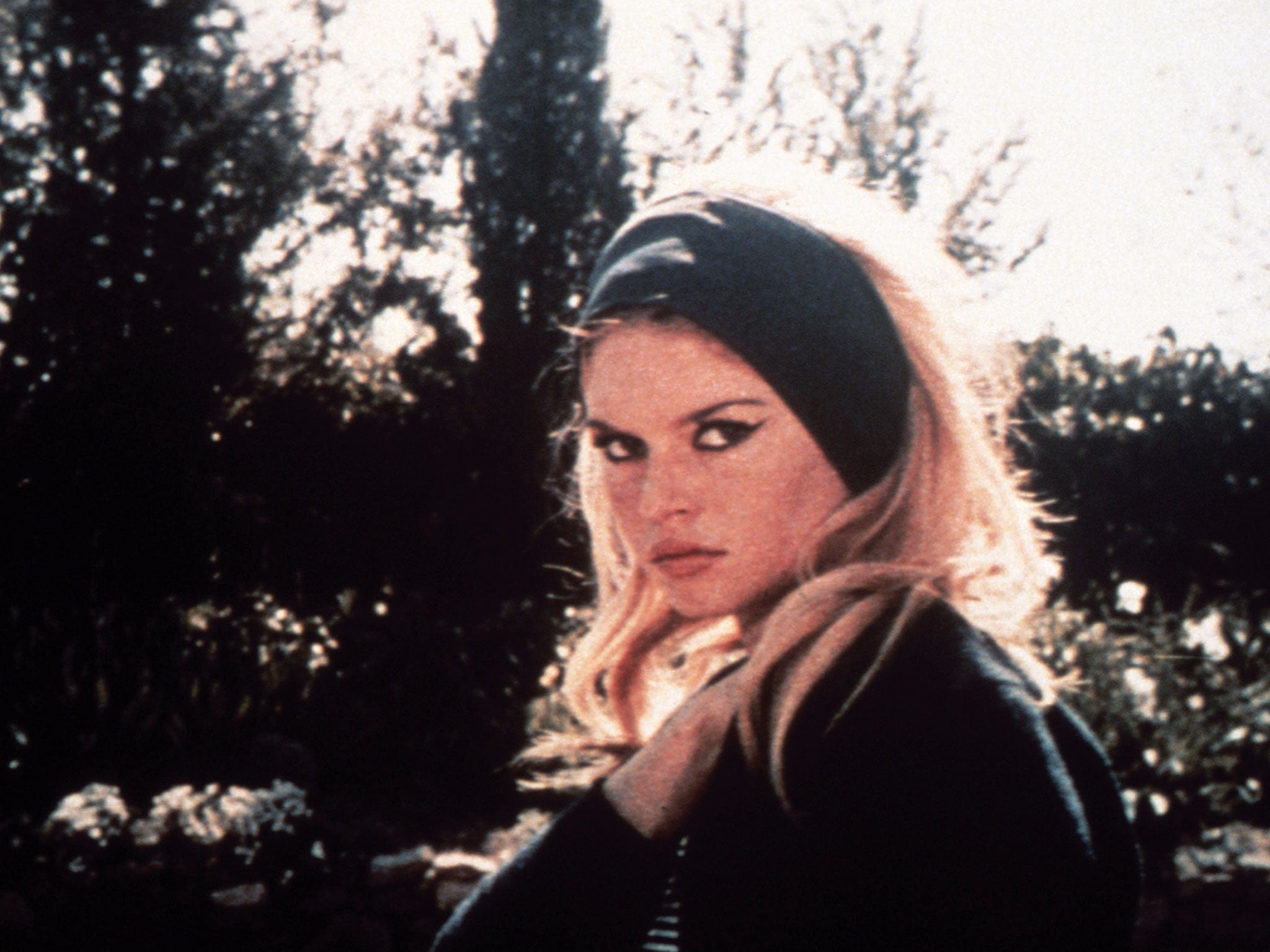Le Mepris, film review: Godard relishes clash between the sublime and the banal
(15) Jean-Luc Godard, 103 mins. Starring: Brigitte Bardot, Michel Piccoli, Jack Palance, Giorgia Moll, Fritz Lang

Your support helps us to tell the story
From reproductive rights to climate change to Big Tech, The Independent is on the ground when the story is developing. Whether it's investigating the financials of Elon Musk's pro-Trump PAC or producing our latest documentary, 'The A Word', which shines a light on the American women fighting for reproductive rights, we know how important it is to parse out the facts from the messaging.
At such a critical moment in US history, we need reporters on the ground. Your donation allows us to keep sending journalists to speak to both sides of the story.
The Independent is trusted by Americans across the entire political spectrum. And unlike many other quality news outlets, we choose not to lock Americans out of our reporting and analysis with paywalls. We believe quality journalism should be available to everyone, paid for by those who can afford it.
Your support makes all the difference.At its simplest, Godard's superlative adaptation of Alberto Moravia's novel, A Ghost at Noon, is a closely focused account of the intense but destructive relationship between a novelist/screenwriter Paul Javal (Piccoli) and his beautiful young wife, Camille (Bardot.) The film is also an essay about cinema itself, full of references to other movies, autobiographical elements and observations about the very process of making films. The credits are read out. Early on, we hear the German film director Fritz Lang (playing himself) dismissing CinemaScope as being only good for "snakes and funerals". In a famous, voyeuristic early scene, Godard himself uses the widescreen format to show off the body of his leading actress. Bardot is pictured lying naked on a bed as Piccoli extols her beauty in fetishistic detail.
A strong strain of fatalism also runs through Le Mepris – a sense that the characters can't defend themselves against their destinies. There is a film within a film structure. In the story, Lang is making his own screen adaptation of Homer's The Odyssey. Jack Palance, looking every bit as threatening and charismatic as when he played the gunslinger in Shane, is Lang's American producer. As the team struggle to make their movie, there is continual talk about the relationship between humans and the gods.
Godard relishes the clash between the sublime and the banal. Scenes of Camille and Javal bickering could come straight from any soap opera but thanks to Georges Delerue's majestic, elegiac music, the use of colour and the classical settings (much of the film was shot in Capri), the characters take on an unworldly glamour. As played by Bardot, Camille isn't just a 28-year-old typist married to a cash-strapped writer but is the ultimate screen siren. Jamal, meanwhile, is the Odysseus-like wanderer. This is also a film exploring betrayal: the deceptions of the American producer, the infidelity of Camille, Javal's mercenary decision to take the job writing the movie in the first place. The miracle here is that for all its use of irony and self-reflexive devices, Le Mepris still ends up with a considerable emotional punch.
Join our commenting forum
Join thought-provoking conversations, follow other Independent readers and see their replies
Comments